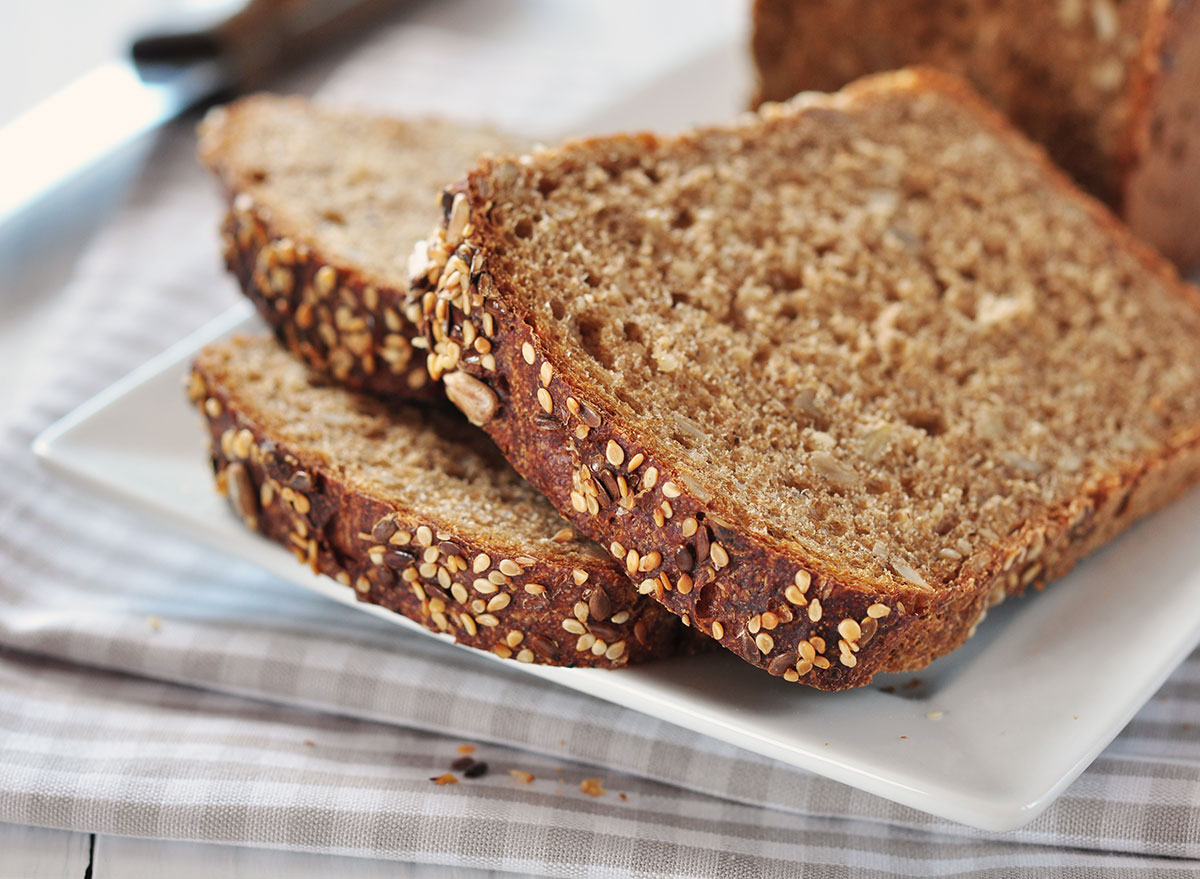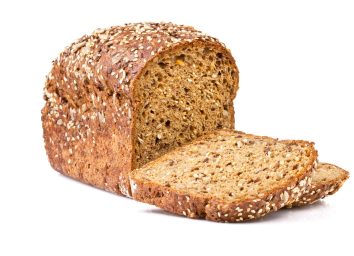One Major Side Effect of Eating Whole Wheat Bread, Says Dietitian

Whole wheat bread is a popular choice for those who want to enjoy the pleasures of their favorite sandwich while consuming more nutrients than a classic slice of white bread. Whole wheat bread can give us a boost of fiber, lower inflammation, and help us have a healthy gut.
But what about the potential downsides of eating whole wheat? One major side effect of eating whole wheat bread is that it can possibly cause gastrointestinal issues for people with IBS, like bloating, stomach cramps, and constipation.
We talked with Lauren Harris-Pincus, MS, RDN, founder of NutritionStarringYOU.com and author of The Protein-Packed Breakfast Club, to find out why and how this sometimes occurs for those with IBS.
But first, what is IBS?
It is estimated that about 25 to 45 million people have irritable bowel syndrome (IBS), and there could be many more who are living undiagnosed. Simply put, IBS is a common occurrence where the large intestine becomes irritated and causes symptoms such as bloating, cramps, constipation, or diarrhea.
IBS can be difficult to diagnose because it can only be diagnosed by symptoms, but it creates a lot of pain and discomfort for those living with it.
Why is whole wheat a potential issue?
Some might assume that gluten is the culprit, but the issue is a bit more complex.
"Contrary to what people think, gluten is not the problem here," says Harris-Pincus, "but it's the fructans in wheat that are often not tolerated well by those with IBS."
Fructans are a type of carbohydrate known as an oligosaccharide that falls into the category of FODMAPs.
"FODMAPs (fermentable oligosaccharides, disaccharides, monosaccharides, and polyols) are a collection of short-chain carbohydrates (sugars) that aren't absorbed properly in the gut, which can trigger symptoms in people with IBS," says Harris-Pincus.
And because the fructans in whole wheat fall under the category of FODMAPs, they have been known to cause unwanted side effects for those with IBS.

How do FODMAPs cause GI pain?
FODMAPs are not just found in whole wheat bread, but "are found in a wide range of foods, such as fruits, vegetables, breads, cereals, nuts, legumes, and sweets," says Harris-Pincus.
The reason FODMAP foods like whole-wheat bread can create problems for those with IBS is because of the excess gas they sometimes cause the body to produce. FODMAPs, including the fructans in whole wheat bread, are naturally fermented inside our bodies and provide our gut bacteria with energy to work. However, as this bacteria uses these fermented FODMAPs, it produces hydrogen, which is known to create excess stomach pain, bloating, gas, and other gastrointestinal issues.
According to the Journal of Human Nutrition and Dietetics, because of these reasons, people with IBS symptoms may want to stay away from foods that are high in FODMAPs, and stick to a lower FODMAP diet when possible.
If you have been diagnosed with IBS or have been experiencing similar symptoms, you may want to be cautious when consuming whole wheat bread. Next time you eat it, pay attention to how your body reacts afterward.
Get even more healthy tips straight to your inbox by signing up for our newsletter! After, read these next:








